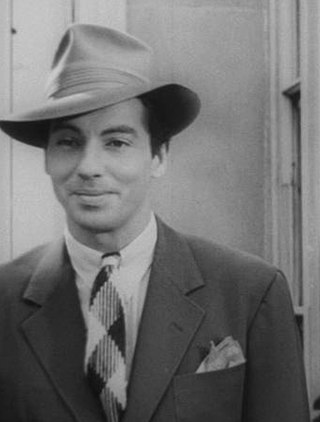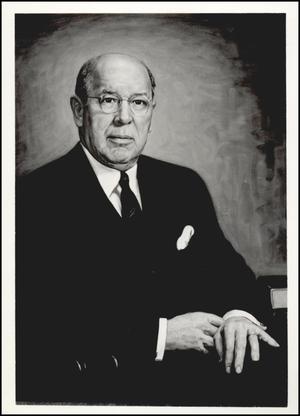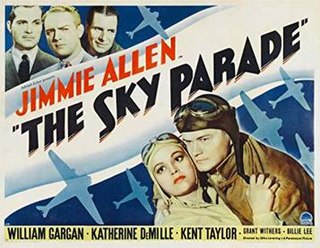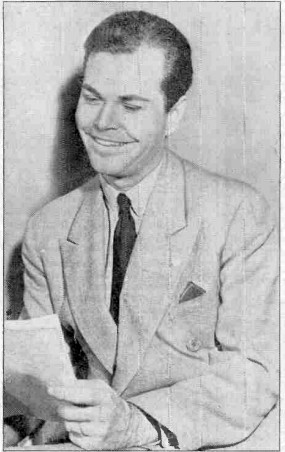The New Adventures of Sherlock Holmes is a radio drama series which aired in the USA from 1939 to 1950, it ran for 374 episodes, with many of the later episodes considered lost media. The series was based on the Sherlock Holmes stories by Arthur Conan Doyle. Some of the surviving episode recordings may be found online, in various audio quality condition.

Adventures of Superman is an American television series based on comic book characters and concepts that Jerry Siegel and Joe Shuster created in 1938. The show was the first television series to feature Superman and began filming in 1951 in California on RKO-Pathé stages and the RKO Forty Acres back lot. Cereal manufacturer Kellogg's sponsored the show. The first and last airdates of the show, which was produced for first-run syndication rather than for a network, are disputed, but they are generally accepted as September 19, 1952, and April 28, 1958. The show's first two seasons were filmed in black-and-white; seasons three through six were filmed in color.

Captain Midnight is an American adventure franchise first broadcast as a radio serial from 1938 to 1949. The character's popularity throughout the 1940s and into the mid-1950s extended to serial films (1942), a television show (1954–1956), a syndicated newspaper strip, and a comic book title (1942–1948).

WDAF-TV is a television station in Kansas City, Missouri, United States, affiliated with the Fox network. The station is owned by Nexstar Media Group, and maintains studios and transmitter facilities on Summit Street in the Signal Hill section of Kansas City, Missouri.
Shelby William Storck was an American newscaster, actor, writer, journalist, public relations specialist, and motion picture and television producer-director. He was a radio actor on The Air Adventures of Jimmie Allen and other programs, and appeared in the feature films The Delinquents and The Cool and the Crazy.

KCSP is a commercial AM radio station licensed to Kansas City, Missouri. The Audacy, Inc.-owned station broadcasts a sports radio format. The studios and offices are located on Squibb Road in Mission, Kansas. KCSP is one of the oldest radio stations in the Kansas City metropolitan area, going on the air in 1922, just after KMBZ, and several months before WHB.

WDAF-FM is a commercial radio station licensed to Liberty, Missouri, and serving the Kansas City metropolitan area. Owned by Audacy, Inc., the station airs a country music radio format, branded as "106-5 The Wolf". Studios and offices are located on Squibb Road in Mission, Kansas.

Reed Hadley was an American film, television and radio actor.

Captain Carleton Scott Young was an American character actor who was known for his deep voice.
Albert Christopher Ladesich, better known as Al Christy, was an American actor, advertising executive, and radio and television announcer.

Skelly Oil Company was a medium-sized oil company founded in 1919 by William Grove (Bill) Skelly, Chesley Coleman Herndon and Frederick A. Pielsticker in Tulsa, Oklahoma. J. Paul Getty acquired control of the company during the 1930s. It became defunct when fully absorbed by Getty Oil Company in 1974, and the disused Skelly brand logo was revived by Nimmons-Joliet Development Corp. in 2012.

Robert D. "Bob" Wells, known as Bob "Hoolihan" Wells, is an American former television and radio personality and actor, who is best known to Cleveland, Ohio television viewers for his appearances on the then-CBS affiliate WJW TV Channel 8 during the 1960s and 1970s as "Hoolihan the Weatherman" and one-half of the Hoolihan and Big Chuck Show movie hosting team. Wells and partner Charles "Big Chuck" Schodowski replaced the former movie host, Ernie Anderson aka "Ghoulardi," in 1966 when Anderson left for Los Angeles to pursue a free-lance announcing and acting career.

Dennis Moore was an American actor who specialized in Western films and film serials.
Imagination Theatre is an American syndicated radio drama program airing on AM & FM radio stations across the United States. It features modern radio dramas. The program first aired in 1996. Originally produced by Jim French Productions, the program is now produced by Aural Vision, LLC.

William Grove Skelly was an entrepreneur who made a fortune in the oil business. Born in Erie, Pennsylvania, he moved to Kansas in 1916, then to Tulsa, Oklahoma, in 1919, where he founded Skelly Oil Company. By 1923, his company was one of the strongest independent producers of oil and gasoline in the United States. He helped organize the first International Petroleum Exposition in Tulsa in 1923 and became president of that organization, a position he held for the rest of his life. He was a founder of the Kansas-Oklahoma branch of the United States Oil and Gas Association, then known as Mid-Continent Oil and Gas Association.

Sky King was an American radio and television series. Its lead character was Arizona rancher and aircraft pilot Schuyler "Sky" King.

The Sky Parade is a 1936 American aviation drama film directed by Otho Lovering and written by Arthur J. Beckhard, Robert M. Burtt, Brian Marlow, Wilfred G. Moore and Byron Morgan. Starring Jimmie Allen, William Gargan, Katherine DeMille, Kent Taylor, Grant Withers and Syd Saylor, it was released on April 17, 1936, by Paramount Pictures.
Hop Harrigan is an American old-time radio juvenile adventure program. It was broadcast on ABC from August 31, 1942, until August 2, 1946, and on Mutual from October 2, 1946, until February 6, 1948. General Foods began sponsoring the program on October 2, 1944; it had previously been unsponsored.

Howie Wing is an American old-time radio juvenile aviation adventure serial. It was syndicated by the World Broadcasting System and distributed initially to stations in Canada, beginning on January 31, 1938. The Don Lee Network began carrying it in the western United States on February 12, 1938. The program was broadcast weekdays on CBS from October 3, 1938, until June 30, 1939.














